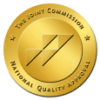If you’re searching for a detox center in Johnson City, TN, you’re in the right place. Tennessee Detox Center offers medically supervised detoxification with expedited admissions and evidence-based care for Johnson City residents who are ready to stop using substances safely.
From your first call, we verify benefits, complete a brief screening, and map a simple arrival so you’re not doing this alone. Our team focuses on comfort and safety—steady hydration, symptom relief, and 24/7 monitoring—while we plan your next step.
Whether that’s residential treatment, day programming, or outpatient support in rehab East TN, you’ll leave detox with clear instructions, real tools for cravings and stress, and a straightforward path toward long-term recovery.
The Importance of Drug & Alcohol Detox in Johnson City, TN
Treatment is delivered at our La Vergne campus in Greater Nashville. We serve clients statewide, including Johnson City and East Tennessee.
To keep things simple, we complete as much as possible virtually—screening, medical history, and benefits checks—so you can move quickly and privately. When available, we coordinate transportation to minimize stress on admission day and help you arrive during the optimal window for assessments and medication initiation.
If you’re searching for detox in Johnson City, TN or rehab in East TN, our medical team can help you start safely, stabilize withdrawal with 24/7 nursing oversight, and choose the right level of care based on your goals, substance use history, and any co-occurring mental health needs.
You’ll know what to expect, who’s on your team, and how we’ll keep momentum going after detox.
What Tennessee Detox Center Offers Johnson City
Tennessee Detox Center offers a seamless continuum, ensuring you never have to piece together your recovery. Care begins with medically supervised detox for alcohol, opioids, benzodiazepines, stimulants, and polysubstance use.






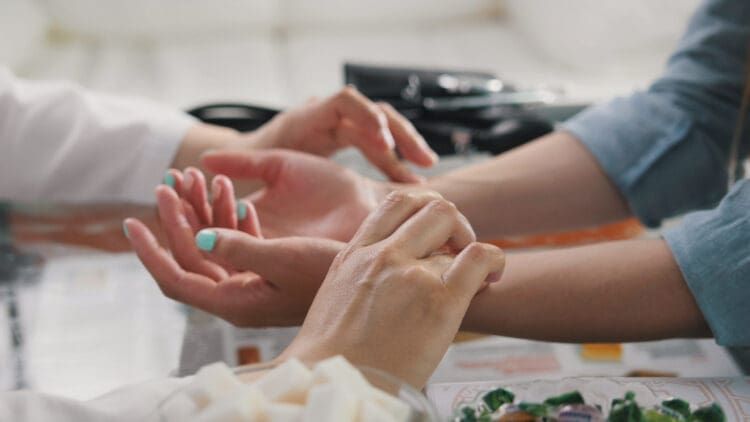
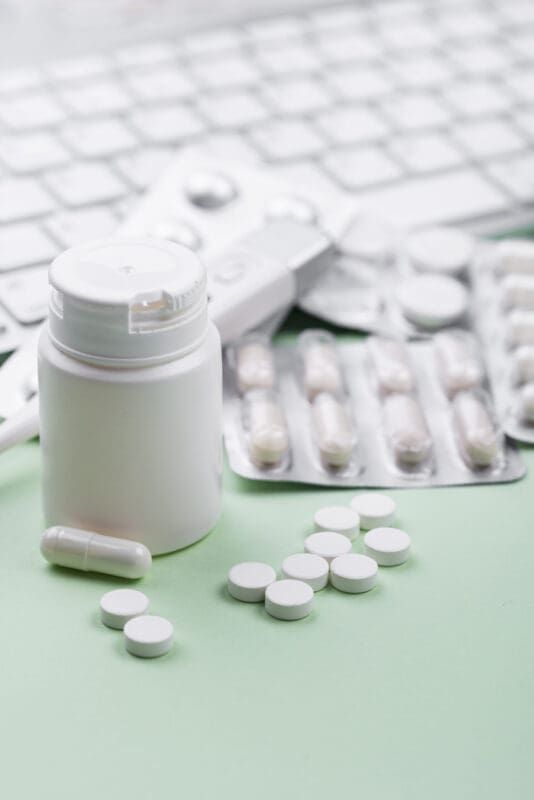


Benefit of Choosing Tennessee Detox Center for Detox
For Johnson City residents, advantages include rapid benefits checks, 24/7 nursing with onsite provider oversight, predictable step-down planning so your next level is reserved early, and coordinated travel from Johnson City to our La Vergne campus.
Whether you’re searching for addiction treatment in Johnson City, TN, drug rehab Johnson City TN, alcohol rehab Johnson City TN, or comparing rehab centers in Johnson City TN, our approach keeps everything under one roof, including medical stabilization, evidence-based therapies, medication management when appropriate, and aftercare that keeps you connected.
The goal is simple: safe detox now, a clear handoff to the right level of care, and steady support as life gets bigger than treatment again.
Commonly Misused Substances Affecting Johnson City (East TN)
Alcohol
Opioids and fentanyl
Benzodiazepines and polysubstance use
Stimulants (methamphetamine and cocaine)
That’s why today’s safety planning includes opioid-aware education for anyone using stimulants, along with the basics that help early on: hydration, regular meals, and real rest.
Together, these patterns explain why starting in a supervised setting with experienced medical oversight is the safest way to begin recovery and why a clear plan for what comes after detox is equally important.
What Happens During Drug & Alcohol Detox near Johnson City, TN
- Day 0–1:
Arrival and settling in. Check-in is calm and private. A nurse reviews your medical history, takes your vital signs, and coordinates basic laboratory tests so the medical team can tailor care to your specific needs and any substances you may be using. You’ll discuss last use, medications, sleep, and any mental health concerns. Comfort medications start early, alongside steady hydration and simple, nourishing meals. We’ll walk you through the daily rhythm—when vitals are taken, who to call overnight, how to ask for help—so you know what’s coming and don’t have to guess.
- Day 2–3:
Riding the peak. For many substances, symptoms crest here. Alcohol and benzodiazepine withdrawals may need closer monitoring; opioid withdrawal often peaks with body aches, GI upset, chills, anxiety, and poor sleep. Nurses check in frequently, adjust comfort medications as needed, and monitor fluid and electrolyte levels. If sleep is elusive, we add non-addictive supports and lower stimulation, such as dim lights and minimal noise, to create predictable routines. Brief, focused coaching introduces quick coping skills, including paced breathing, urge surfing, and short grounding exercises, which you can use between medication doses.
- Day 4–14:
Stabilizing and planning ahead. Symptoms usually ease into smaller waves. Hydration levels stabilize, appetite returns, and medications are tapered as needed. This is when cravings planning gets specific, focusing on personal triggers, early warning signs, and a simple “if-then” playbook for tough moments. Therapy touchpoints help you choose your next step (residential, day treatment, or intensive outpatient) so there’s no gap after detox. Discharge planning begins early and remains flexible; your team updates it as your body stabilizes and your goals become clearer.
-
Every detox looks a little different. Timelines shift based on substance mix, dose, duration, overall health, and whether more than one drug is involved. Some people move quickly; others need a slower curve and extra monitoring.
The common thread is steady medical oversight, compassionate support, and a plan that adapts to your pace so you leave safer, clearer, and ready to begin treatment with momentum.
Why Choose Tennessee Detox Center for Drug and Alcohol Detox
Detox is medical care delivered with respect.
A 24/7 nursing team follows provider-led protocols for alcohol, opioid, and benzodiazepine withdrawal, with vitals checks timed to your risk. Safety and comfort go hand in hand: hydration and nutrition plans, symptom-specific medications, and frequent reassessment ensure relief arrives when you need it.
Rest is part of the treatment.
We emphasize sleep hygiene—consistent lights-out, quiet hours, and gentle routines that signal the nervous system to settle. If you’re sensitive to noise or light, we can adjust the space to accommodate your needs. Low-stimulation common areas, soft linens, and simple meals help you conserve healing energy.
Care is trauma-informed and privacy-forward.
Staff explain each step, ask permission whenever possible, and offer choices—small but meaningful control when you don’t feel well. You decide who is contacted and how often; that’s essential for professionals, first responders, and families who need discretion.
From admission to discharge planning, the aim is the same: to protect your health, reduce discomfort, and treat you as a whole person, so that you can enter the next phase of recovery feeling safe, respected, and ready.
-
Who should consider Drug and Alcohol Detox in Johnson City, TN
Detox is for Johnson City residents who want a safe, medical start to recovery, whether the concern is alcohol, opioids, benzodiazepines, stimulants, or a mix of substances. It’s a strong fit if you’re using daily, if you’re unsure what’s in your supply, or if co-occurring concerns like anxiety, depression, or PTSD make symptoms feel unpredictable.
In a supervised setting, discomfort is addressed, risks are managed, and your next steps are outlined, so you’re not left to navigate on your own at home.
It’s also for both first-timers and returners. Maybe you’ve tried tapering on your own and felt worse, or you stopped suddenly and ran into intense withdrawal, poor sleep, or cravings that were hard to handle.
Medical detox provides 24/7 nursing oversight, comfort medications, hydration and nutrition support, and a calm routine that helps your body settle and your mind clear.
Before pursuing admission, seek urgent medical care first if any of these red flags are present:
- Seizures now, or a history of alcohol withdrawal seizures
- Severe confusion, disorientation, or hallucinations
- Chest pain, trouble breathing, or very high blood pressure
- Uncontrolled vomiting or signs of dehydration (fainting, no urination, dizziness)
- Recent head injury or loss of consciousness
- Suicidal thoughts or severe agitation that feels unsafe
If you’re uncertain whether symptoms are safe to manage in detox or require emergency care, err on the side of caution. Stabilizing first protects your health, and treatment can continue once you’re medically cleared.
Levels of Care & Dual Diagnosis
Recovery works best when each step prepares you for the next. It begins with medical detox: stabilizing your body, restoring sleep and hydration, easing withdrawal, and introducing simple coping skills so you’re ready to benefit from therapy. You leave with a plan in hand, not just a discharge time.

Medically Assisted Detox
Recovery works best when each step prepares you for the next. It begins with medical detox: stabilizing your body, restoring sleep and hydration, easing withdrawal, and introducing simple coping skills so you’re ready to benefit from therapy. You leave with a plan in hand, not just a discharge time.
Who it’s for: Medical detox is the safest starting point when there’s physical dependence on alcohol, opioids, benzodiazepines, or multiple substances, especially if you’ve had rough withdrawals before, have medical complexity, or are dealing with intense anxiety, depression, or sleep disruption.
What happens: Care is round-the-clock. Nurses track vital signs and symptoms, and communicate changes to medical providers who direct evidence-based protocols. Targeted comfort medications address nausea, tremor, restlessness, pain, and insomnia. Hydration and electrolyte balance are restored through the consumption of fluids and a balanced diet. The environment remains low-stimulation, featuring soft lighting, quiet halls, and predictable routines, so your nervous system can settle. As symptoms ease, staff provide clear, plain-language psychoeducation about withdrawal timelines, craving cycles, and what “normal” looks like in the first week without substances.
Clinical goals: Prevent dangerous complications (like seizures or severe agitation), reduce acute distress to manageable levels, identify co-occurring mental health needs, and prepare you to engage in therapy with a clearer head and steadier body.
Typical length: Most people complete this phase in 7-14 days; timelines can be longer for benzodiazepine dependence, polysubstance use, or complex medical histories.
Success markers: Stable vitals, fewer and milder symptoms, improved sleep and appetite, and enough clarity and energy to move to the next level with a concrete plan rather than white-knuckling at home.
For those searching for medical detox in Johnson City, this phase is your safe on-ramp: you’re monitored, medicated appropriately, hydrated, fed, and treated with respect while the team maps the next step—residential treatment, day programming, or intensive outpatient—so there’s no gap in care when you’re ready to continue.

Residential/Inpatient
Residential/Inpatient care comes next for many people who want a tight structure and fewer triggers. Days follow a predictable rhythm—individual and group therapy, skills practice, movement, meals, and sleep that’s actually protected.
Who it’s for: When home feels chaotic, triggers are everywhere, or prior attempts slipped after detox, residential care provides containment and steady structure.
What happens: Your days follow a predictable rhythm: morning grounding or mindfulness, an individual session to tailor your goals, and small, skills-focused groups that build coping, communication, and relapse prevention skills. Afternoons reinforce practice with real scenarios and gentle accountability. With your consent, family work aligns expectations and boundaries, so that home supports recovery instead of creating friction.
Clinical goals: Turn early stability into a routine you can repeat. Practice CBT and DBT skills until they’re second nature. Address drivers—stress, sleep disruption, pain, trauma cues—so you’re not white-knuckling through triggers.
Length: Milestone-based rather than a fixed calendar. You step down when safety, skills, and support are reliably in place.
Success markers: You can name triggers in real time, use at least three coping tools without prompting, and keep a predictable daily rhythm that protects sleep, meals, and therapy. This is what most people imagine when they search for inpatient rehab in Johnson City, TN, or explore residential treatment in Johnson City.

PHP Johnson City
Partial Hospitalization (PHP Johnson City, TN, provides high-intensity day treatment with evenings at home or in sober housing. You’ll test your skills in real-life situations after sessions, then bring wins and challenges back to the team the next day to fine-tune your sleep, medications, and strategies for managing triggers.
Who it’s for: You’re ready for more independence but still benefit from intensive daytime care and daily clinical touchpoints.
What happens: Several therapy blocks are conducted each weekday, blending individual work with focused groups. Medication management continues with close feedback. Evenings are your testing ground—family time, errands, or rest—followed by next-day debrief to refine strategies, sleep, and routines.
Goals: Strengthen coping under light to moderate stress, fine-tune meds and sleep, build a practical if-then relapse plan for high-risk windows, and lock in your step-down date so momentum never stalls.
Length: Typically several weeks, adjusted to progress and home supports.
Success: Consistent evening skill use, fewer spikes in cravings or mood, and faster resets when stress lands. A solid, real-world bridge—exactly what people mean when they ask about PHP, Johnson City, TN.

Intensive Outpatient (IOP) — Skills and Accountability
Intensive Outpatient (IOP) in Johnson City, TN, keeps accountability strong with fewer hours. You’ll work on relapse prevention, communication, and stress routines while returning to work, school, or caregiving. The schedule is flexible enough to allow you to live your life, yet structured enough to maintain progress.
Who it’s for: You’re returning to work, school, or caregiving and want structured support without full-day treatment.
What happens: Multiple sessions each week at dependable times. Groups focus on relapse prevention, communication, sleep hygiene, and stress management techniques. Individual sessions zero in on your real-life friction points—difficult conversations, travel triggers, anniversaries, or social pressure—so plans aren’t theoretical.
Goals: Maintain gains while planning for stressors, keep medication reviews steady and data-informed, and broaden your support map with peers, mentors, and healthy activities.
Length: Weeks to months, paced to your stability, responsibilities, and goals.
Success: A sturdy weekly rhythm—work or classes, movement, reliable meals, and recovery touchpoints—plus a written 90-day plan you’ll actually follow. The practical next step many mean when they search IOP Johnson City, TN.

Outpatient (OP) in Johnson City, TN
Outpatient (OP) is your maintenance lane. Session cadence matches your stability and goals. If medication management is part of your plan, it continues at sensible intervals. Therapy focuses on addressing new stressors, so small problems don’t escalate—exactly what most people mean when they ask about outpatient rehabilitation in Johnson City, TN, or Johnson City rehab.

Aftercare and Alumni
Aftercare and Alumni support keep you anchored over time, with check-ins, peer groups, and relapse-prevention refreshers, plus an easy path to step up the intensity if life gets tough. The common thread from start to finish is continuity—one team coordinating detox, residential, PHP, IOP, OP, and aftercare—so you’re never left guessing about what comes next.
Who it’s for: Everyone stepping down from structured treatment—connection lowers risk and makes recovery more satisfying.
What happens: You’ll have periodic check-ins to review early-warning signs, peer groups for honest wins and setbacks, and short skills refreshers when old tools lose their edge. If life tilts—grief, travel, conflict—you can book quick boosters to steady the ship.
Goals: Catch small slips before they escalate, update relapse-prevention plans to account for seasonal and life-stage changes, and keep warm handoffs ready in case you need to increase intensity for a short period.
Success: Steady routines month after month, engaged community ties, and early course corrections when indicators slip. You stay anchored to what works—sleep, meals, movement, meetings—and know exactly how to ask for more help the moment you need it.

Dual Diagnosis
Substance use rarely travels alone. Anxiety, depression, and PTSD often ride alongside it, and when those symptoms go untreated, relapse risk climbs. Our approach to dual diagnosis treatment in Johnson City, TN, is straightforward: address both conditions simultaneously, so progress doesn’t depend on willpower alone. This is full-spectrum mental health and addiction treatment in Johnson City, TN, woven into every step of care.
Detox and Residential. First, we calm the body and nervous system. We stabilize sleep, support hydration and nutrition, and use nonaddictive options for anxiety when appropriate. You’ll learn grounding tools—breathing drills, five-senses resets, brief movement—and build a written safety plan for tough moments. The goal is steadier days so you can actually participate in therapy.
PHP and IOP. Next comes parallel work: one track for substance use, one for mood or trauma. DBT skills—distress tolerance and emotion regulation—give you fast, reliable ways to ride out spikes without reaching for old habits. Cognitive strategies help interrupt spirals and catastrophic thinking. You’ll map triggers, stack coping in layers (fast, medium, long), and practice communication that reduces conflict instead of igniting it.
OP and Aftercare. As life becomes more complex than treatment, we shift to routine maintenance. That means mental health basics that pay off: regular movement, morning light exposure, predictable sleep windows, and tech boundaries that protect focus and mood. Quick booster sessions are available when seasons change, travel increases, or stress levels rise.
The outcome we’re aiming for is practical: steadier days, fewer symptom-driven slips, and less reliance on sheer willpower to stay on track. When substance use and mental health are treated together, recovery feels more stable because the same skills that quiet cravings also calm the mind and improve sleep, relationships, and daily function.
Family Involvement
With your consent, family involvement helps align expectations and build a home plan that supports recovery. This phase is what most people picture when they think of inpatient rehab in Johnson City, TN—only here, your step-down is coordinated in advance, so momentum doesn’t stall.
Families want to help, and they can without becoming the recovery police. We teach loved ones what early recovery really looks like: uneven energy, changing sleep, and the need for simple routines.
They learn to establish clear boundaries and use plain language communication, so support feels steady, not stressful. Together, you’ll develop a brief plan for check-ins, encouragement, and strategies for handling challenging days.
You stay in control the whole time. With your consent, we determine who receives updates, how often, and what level of detail is shared. Some prefer brief texts; others want a weekly call. We adjust the cadence to your comfort and make adjustments as you settle in.
Why it helps: when home expectations are clear and conversations are calmer, friction drops and progress sticks. Families stop trying to fix everything and start reinforcing the basics—sleep, meals, appointments, and skills practice. That stability protects momentum and gives everyone a shared playbook, so recovery becomes a team effort rather than a tug-of-war.
Therapies Used in Drug & Alcohol Detox near Johnson City
Your care combines one-on-one attention, peer support, and practical education that you can apply immediately. In individual therapy, you’ll set goals, unpack patterns, and tailor strategies to your history, strengths, and stressors.

Group Therapy

CBT and DBT
Clinically, expect a toolkit built around CBT (spotting and reframing unhelpful thoughts), DBT skills (distress tolerance, emotion regulation, and interpersonal effectiveness), mindfulness, and customized coping and craving plans.
You’ll leave with a written “first five minutes” playbook for tough moments like how to stabilize, who to contact, and how to reset without losing ground. If you’re seeking mental health and addiction treatment in Johnson City, TN, this integrated approach addresses both sides of the equation so sobriety isn’t undermined by unmanaged anxiety, depression, or trauma cues.

Medication management
Medication management supports comfort and function. During stabilization, symptom-specific medications reduce risk and distress; as you step down, dosing is reviewed and adjusted to match your goals and side-effect tolerance. When indicated, medication-assisted treatment can reduce cravings and improve sleep and mood, so therapy can do its work.

Return-to-work support
Life doesn’t pause for recovery, so we plan for logistics. Return-to-work support includes pacing, simple communication scripts, and routines that protect sleep, meals, and meetings. School coordination can involve letters, schedule adjustments, and study blocks that fit treatment hours. The outcome is a realistic plan you can follow with solid clinical care plus everyday structure that makes progress sustainable.

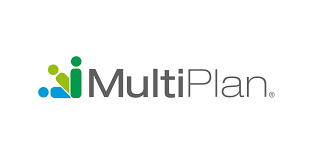

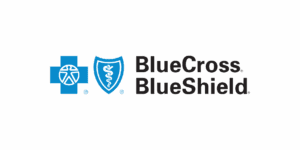
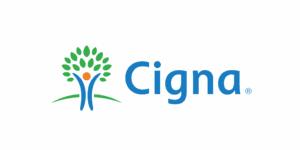








Medication Management and MAT Pathways
Our guiding principle is simple: medications support change—they don’t replace it. We use them to lower risk, ease symptoms, and help you function so therapy and daily routines can do the heavy lifting.
During detox, clinicians rely on symptom-specific medications to manage withdrawal safely. Vitals are checked regularly, side effects are monitored, and doses are adjusted in real-time. The goal is steady hydration, calmer sleep, and controlled symptoms—without adding new problems.
As care continues, medication-assisted treatment (when indicated) can stabilize cravings and mood so you can engage fully in therapy. Plans are individualized and reviewed on a regular cadence to ensure benefits outweigh side effects and that dosing matches your life—work hours, family needs, and sleep schedule.
When mental health medications are appropriate, we choose and time them to support daytime focus and nighttime rest, not just blunt symptoms.
Your team will explain options in plain language, outline the pros and cons, and build a “how we’ll know it’s working” checklist. Expect the smallest effective dose, clear targets (such as sleep, cravings, energy, and anxiety), and a path to pause or taper when you’re ready. Meds sit alongside CBT/DBT skills, mindfulness, and a practical weekly routine. Together, they form a balanced and sustainable plan

Some people step down from Residential or PHP and want evenings in a clean, recovery-consistent setting while habits settle in. Sober housing provides that buffer: predictable routines, supportive peers, and fewer surprises while you build confidence.
We coordinate logistics to ensure seamless transitions between levels of care. Admission dates are sequenced, transportation and schedules are set in advance, and paperwork stays simple. If you’re balancing work or family obligations, we’ll adjust curfews, program hours, and check-ins to help keep life moving without compromising your recovery.
Why it matters: the early weeks are fragile. Reducing chaos, such as last-minute plans, unstable environments, and irregular sleep patterns, helps protect momentum. With a stable place to land each night, you conserve energy for therapy, meals, movement, and the basics that make progress stick.
Recovery has to fit your actual life. For work, we map return-to-work plans that anticipate shift changes, deadlines, travel, and social expectations.
Together, we add buffers—hydration and meal anchors, brief movement between meetings, and micro-resets (two minutes of breathing, a short walk, or a quick call)—that you can use after challenging moments. We’ll also draft simple communication scripts for declining events, requesting schedule adjustments, or resetting boundaries without oversharing.
For school, we help structure time-boxed study blocks, protected sleep windows, and technology boundaries that maintain focus. When needed, we can supply advisor letters and coordinate reasonable adjustments so you can attend treatment and stay on track academically.
The final piece is boundaries—a personal “availability policy” that clarifies when you take calls, when you unplug, and how you respond to last-minute requests.
With a few clear rules and recovery touchpoints on the calendar, your days feel doable. You’re not fighting the clock; you’re following a routine designed to keep you steady while life grows around your progress.

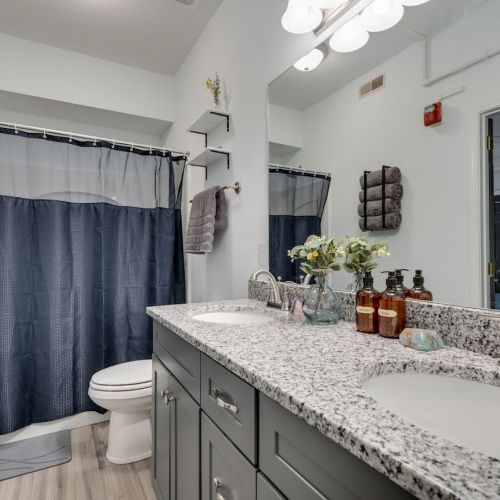






You don’t need a spreadsheet to see if recovery is working—just a few simple markers.
Start with sleep consistency: roughly similar bed and wake times most days. Add three daily fuel anchors—breakfast, a midday protein-centered meal, and an evening meal—to steady energy and mood.
Aim for most days of movement, even if it’s a 15–20 minute walk. Maintain two recovery touchpoints each week, such as a group, therapy, a peer call, or a skills class. Once a month, conduct a brief early-warning review to note patterns in sleep, stress, cravings, and connection.
If two markers slip for a week—say, meals and meetings—escalate support fast. Add a group, schedule a clinician check-in, or revisit medications. Tighten your evening routine, set a hydration reminder, and plan a brief walk after the hardest part of your day.
The aim is progress over perfection. Quick adjustments prevent a rough patch from becoming a setback. Over time, these basics make recovery feel sturdy and livable.
Getting started is private and straightforward. It begins with a confidential call where you share what’s going on and what you need. We conduct a brief screening, after which a clinician reviews your health history, substance use patterns, and medications to determine the safest starting point for your treatment. Together, we set an admission date and map out a simple travel plan from Johnson City, ensuring your arrival is organized and not rushed.
Insurance verification is quick. A few details will allow us to review your benefits and explain coverage in plain language. To expedite the process, please have your ID, plan information, and date of birth readily available. You’ll receive a clear summary of likely coverage and any estimated out-of-pocket costs before you travel, so there are no surprises.
What to bring is simple: a photo ID, your insurance card, and current prescriptions in their original bottles. Pack lightly—comfortable clothes, basic toiletries, and key contacts for loved ones and providers you want involved. If you’re unsure about an item, ask; we’ll help keep packing safe and stress-free.
Family involvement is your choice. With your consent, we will establish an update cadence such as brief texts, a weekly call, or another format you prefer. When the timing is right, family sessions help align expectations, establish boundaries, and build a plan for the first weeks after discharge.
During the first 72 hours, you’ll complete orientation, review a personalized safety plan, and follow a predictable schedule for vitals, hydration, and meals. Lab work and assessments guide your medication plan.
As symptoms settle, you’ll have your first therapy touchpoints—short, practical conversations focused on cravings, sleep, and stress—while we lock in your next level of care so there’s no gap after detox.
We keep finances transparent. If a service isn’t covered, we explain it in advance and provide an estimate. You’ll know what’s included, what’s optional, and how billing works before admission.
Our goal is the same as yours: a safe and supported start that clears the path to residential or outpatient treatment, without confusion about logistics or costs.




Most clients drive I-40 W toward Greater Nashville, then connect to La Vergne. It’s a straightforward route, typically 4–4.5 hours depending on traffic and weather. If you prefer not to drive, ask about coordination options.
When available, we can help arrange a pickup or rideshare service timed to your admission window. Pack light: photo ID, insurance card, prescriptions in their original bottles, comfortable clothing, and key contacts written down on paper.
Aim to arrive during the agreed check-in time so assessments and medications can begin promptly. If your clinical screening indicates it’s appropriate, we can arrange same-day or next-day admission to keep momentum and reduce stress.
If you or someone you love is in immediate danger, call 911 or go to the nearest emergency department. In Johnson City, nearby options include Johnson City Medical Center and Franklin Woods Community Hospital.
For mental health or substance-related crises, call or text 988 to reach the Suicide & Crisis Lifeline any time. Tennessee’s statewide crisis line is available 24/7 at 855-CRISIS-1 (855-274-7471) and can connect you with local services quickly. Mutual-help groups can complement professional care.
Alcoholics Anonymous (AA), Narcotics Anonymous (NA), and SMART Recovery list Johnson City–area meetings on their official websites, offering both in-person and online options. These resources are independent of Tennessee Detox Center and are provided for informational purposes only; inclusion does not imply affiliation or endorsement.
Detox clears the fog and settles your body; recovery is what you build next. Simple routines make the biggest difference: aim for steady sleep, three solid meals with enough protein and fluids, most days of movement (even a short walk), and brief stress care such as taking two minutes to breathe, writing a journal note, or stepping outside when cravings spike.
Your team will help you choose the right next level of care and establish a weekly rhythm that suits your work, school, and family commitments. Our aftercare and alumni touchpoints keep you connected through check-ins, peer groups, and relapse-prevention refreshers. If life takes a turn, you can quickly re-enter a higher level of support without starting over.
You don’t have to figure this out alone; we’ll help you choose the next step that aligns with your goals, family needs, and timing, so progress feels achievable and sustainable.
FAQ: Drug & Alcohol Detox in Johnson City, TN
Detox in Johnson City combines medical supervision with a focus on comfort and safety. Programs in the area provide 24/7 monitoring and individualized care to help clients withdraw from substances in a medically supported environment.
Medical detox helps the body safely clear substances while managing withdrawal symptoms. Providers monitor vital signs, adjust medications as needed, and offer support throughout the process to reduce discomfort and risk.
Anyone struggling with physical dependence on drugs or alcohol — especially those with a history of heavy use, previous withdrawal complications, or co-occurring health issues — may benefit from a structured detox program in Johnson City.
The length of detox varies depending on the substance, level of dependence, and individual health. Detox may last several days to a week or more, with the care team adjusting the timeline to meet each person’s specific needs.
After detox, clients are encouraged to transition into a comprehensive treatment program. This may include residential care, outpatient therapy, counseling, or ongoing support services to address behavioral and emotional aspects of recovery.
Withdrawal from drugs or alcohol can be unpredictable and potentially dangerous without proper oversight. Medical professionals can manage symptoms, prevent complications, and ensure a safer, more comfortable detox experience.
Visitation policies vary by facility, but many programs encourage family support. Connecting with loved ones can provide encouragement and help clients feel supported throughout detox and the transition to further treatment.
[1] Office of the Commissioner. (2025, September 25). FDA and Kratom. U.S. Food And Drug Administration. https://www.fda.gov/news-events/public-health-focus/fda-and-kratom
[2] Kratom. (2022, March 25). National Institute on Drug Abuse. https://nida.nih.gov/research-topics/kratom
[3] Striley, C. W., Hoeflich, C. C., Viegas, A. T., Berkowitz, L. A., Matthews, E. G., Akin, L. P., Iheanyi-Okeahialam, C., Mansoor, U., & McCurdy, C. R. (2022). Health Effects Associated With Kratom (Mitragyna speciosa) and Polysubstance Use: A Narrative Review. Substance Abuse Research and Treatment, 16. https://doi.org/10.1177/11782218221095873
[4] Striley, C. W., Hoeflich, C. C., Viegas, A. T., Berkowitz, L. A., Matthews, E. G., Akin, L. P., Iheanyi-Okeahialam, C., Mansoor, U., & McCurdy, C. R. (2022b). Health Effects Associated With Kratom (Mitragyna speciosa) and Polysubstance Use: A Narrative Review. Substance Abuse Research and Treatment, 16. https://doi.org/10.1177/11782218221095873
[5] Smith, K. E., Sharma, A., Grundmann, O., & McCurdy, C. R. (2023). Kratom alkaloids: a blueprint? ACS Chemical Neuroscience, 14(2), 195–197. https://doi.org/10.1021/acschemneuro.2c00704
[6] Becker, D. E. (2012). Basic and Clinical Pharmacology of Autonomic Drugs. Anesthesia Progress, 59(4), 159–169. https://doi.org/10.2344/0003-3006-59.4.159

Medically Reviewed By:
Dr. Vahid Osman, M.D.
Board-Certified Psychiatrist and Addictionologist
Dr. Vahid Osman is a Board-Certified Psychiatrist and Addictionologist who has extensive experience in skillfully treating patients with mental illness, chemical dependency and developmental disorders. Dr. Osman has trained in Psychiatry in France and in Austin, Texas. Read more.

Clinically Reviewed By:
Josh Sprung, L.C.S.W.
Board Certified Clinical Social Worker
Joshua Sprung serves as a Clinical Reviewer at Tennessee Detox Center, bringing a wealth of expertise to ensure exceptional patient care.
Read More
The Joint Commission – The Gold Seal of Approval® signifies that Tennessee Detox Center meets or exceeds rigorous performance standards in patient care, safety, and quality. It reflects a commitment to continuous improvement and clinical excellence.
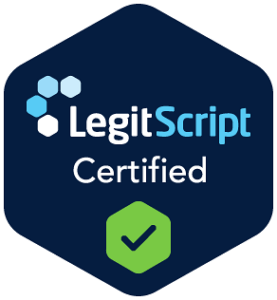
LegitScript Certified – Confirms that Tennessee Detox Center operates in full compliance with laws and regulations, and meets high standards for transparency and accountability in addiction treatment marketing.
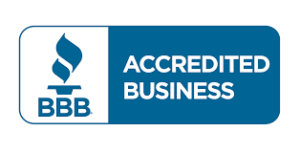
BBB Accredited – Demonstrates ethical business practices, commitment to customer satisfaction, and a trusted reputation within the community.
Psychology Today Verified – Indicates that Tennessee Detox Center is listed on Psychology Today, a trusted directory for verified mental health providers and treatment centers.
HIPAA Compliant – Ensures all patient health information (PHI) is protected and managed in accordance with strict federal privacy and data security standards.
ASAM Member – Tennessee Detox Center is a proud member of the American Society of Addiction Medicine (ASAM), reflecting a commitment to science-driven and evidence-based treatment standards.

Rutherford County Chamber of Commerce – Membership signifies active participation in the local community and support for regional growth and civic collaboration.
Get Family Support Now
Supporting Families Through Recovery
We understand addiction affects the whole family. Our comprehensive family program helps rebuild trust and restore relationships.
Weekly Family Therapy Sessions
Educational Workshops
Support Groups
Communication Skills Training


Location-based pages on Tennessee Detox Center website provide general information about addiction treatment services and regional availability. Services may vary by location, availability, and clinical appropriateness.
Information provided does not guarantee service availability in all areas. Admissions eligibility is subject to assessment.
In emergencies, including overdose or withdrawal crises, call 911 immediately.
Insurance coverage must be verified directly. No guarantees are made regarding placement or outcomes.
Website use does not establish a provider-patient relationship.
[1] Office of the Commissioner. (2025, September 25). FDA and Kratom. U.S. Food And Drug Administration. https://www.fda.gov/news-events/public-health-focus/fda-and-kratom
[2] Kratom. (2022, March 25). National Institute on Drug Abuse. https://nida.nih.gov/research-topics/kratom
[3] Striley, C. W., Hoeflich, C. C., Viegas, A. T., Berkowitz, L. A., Matthews, E. G., Akin, L. P., Iheanyi-Okeahialam, C., Mansoor, U., & McCurdy, C. R. (2022). Health Effects Associated With Kratom (Mitragyna speciosa) and Polysubstance Use: A Narrative Review. Substance Abuse Research and Treatment, 16. https://doi.org/10.1177/11782218221095873
[4] Striley, C. W., Hoeflich, C. C., Viegas, A. T., Berkowitz, L. A., Matthews, E. G., Akin, L. P., Iheanyi-Okeahialam, C., Mansoor, U., & McCurdy, C. R. (2022b). Health Effects Associated With Kratom (Mitragyna speciosa) and Polysubstance Use: A Narrative Review. Substance Abuse Research and Treatment, 16. https://doi.org/10.1177/11782218221095873
[5] Smith, K. E., Sharma, A., Grundmann, O., & McCurdy, C. R. (2023). Kratom alkaloids: a blueprint? ACS Chemical Neuroscience, 14(2), 195–197. https://doi.org/10.1021/acschemneuro.2c00704
[6] Becker, D. E. (2012). Basic and Clinical Pharmacology of Autonomic Drugs. Anesthesia Progress, 59(4), 159–169. https://doi.org/10.2344/0003-3006-59.4.159

Medically Reviewed By:
Dr. Vahid Osman, M.D.
Board-Certified Psychiatrist and Addictionologist
Dr. Vahid Osman is a Board-Certified Psychiatrist and Addictionologist who has extensive experience in skillfully treating patients with mental illness, chemical dependency and developmental disorders. Dr. Osman has trained in Psychiatry in France and in Austin, Texas. Read more.

Clinically Reviewed By:
Josh Sprung, L.C.S.W.
Board Certified Clinical Social Worker
Joshua Sprung serves as a Clinical Reviewer at Tennessee Detox Center, bringing a wealth of expertise to ensure exceptional patient care.
Read More
The Joint Commission – The Gold Seal of Approval® signifies that Tennessee Detox Center meets or exceeds rigorous performance standards in patient care, safety, and quality. It reflects a commitment to continuous improvement and clinical excellence.

LegitScript Certified – Confirms that Tennessee Detox Center operates in full compliance with laws and regulations, and meets high standards for transparency and accountability in addiction treatment marketing.

BBB Accredited – Demonstrates ethical business practices, commitment to customer satisfaction, and a trusted reputation within the community.
Psychology Today Verified – Indicates that Tennessee Detox Center is listed on Psychology Today, a trusted directory for verified mental health providers and treatment centers.
HIPAA Compliant – Ensures all patient health information (PHI) is protected and managed in accordance with strict federal privacy and data security standards.
ASAM Member – Tennessee Detox Center is a proud member of the American Society of Addiction Medicine (ASAM), reflecting a commitment to science-driven and evidence-based treatment standards.

Rutherford County Chamber of Commerce – Membership signifies active participation in the local community and support for regional growth and civic collaboration.
Holistic Detox Services
Hear directly from those who have walked the path to recovery. Our patients’ stories highlight the compassionate care, effective programs, and life-changing support they’ve experienced. Let their journeys inspire you as you take your first steps toward healing.









Thank you all so much!




















The facility itself is clean, well-maintained, and equipped with all the necessary amenities to provide a serene and supportive environment.
What truly stands out is the personalized approach to care. The team developed a treatment plan tailored to my specific needs, incorporating both medical and holistic therapies. This comprehensive approach not only addressed my physical withdrawal symptoms but also supported my mental and emotional well-being.
The counselors and therapists offer a range of therapies that helped me understand the root causes of my addiction and develop effective coping strategies. Group therapy sessions provided a safe space to share experiences and gain insights from others on similar journeys.
Overall, my experience with this medical detox program was life-changing. The compassionate and skilled staff, combined with the personalized treatment approach, provided me with the foundation I needed for a successful recovery. I highly recommend this facility to anyone seeking a safe and supportive environment for detox and recovery.
But it's the people who make this place truly special. The staff, they've been there, they understand the struggle. No judgment, just support, encouragement, and a genuine desire to help you heal. They treated me like an old friend, even though I was just visiting for my buddy.
They've got a whole range of therapies to help you on your journey – individual counseling, group sessions, and even a fitness center to get you moving again. It's not just about detox. It's about rebuilding your life from the ground up.
My friend, the owner, he's living proof that this place works. He poured his heart into creating a haven for those seeking recovery, and his passion shines through in every detail.
So, if you're ready to take that first step, this is the place. Trust me, they'll walk beside you every step of the way.


